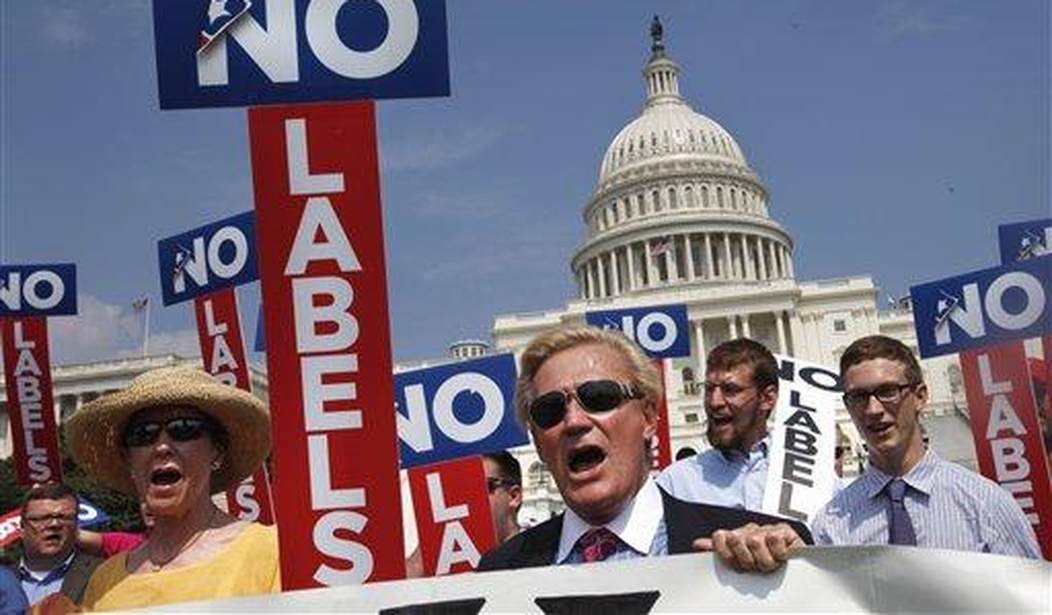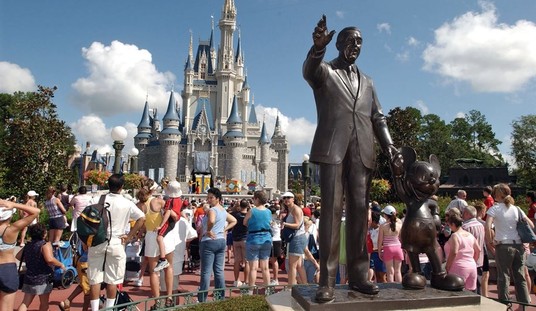No third party has come close to winning the presidency since World War II. George Wallace won a few states in 1968 running on a "states' rights" platform, but Wallace was a regional candidate whose only hope was to capture enough votes to send the election to the House of Representatives. He didn't even come close.
Democratic operative and former Obama aide Jim Messina tries to make the point that since a third party has never won the presidency before, it will not happen this time.
"With a rematch between President Joe Biden and Donald Trump almost set in stone, it’s time to put a farce to rest: The notion that a third-party candidate could actually win the presidency in 2024," Messina wrote in an op-ed for Politico.
"No Labels is pushing a dangerous lie that would simply serve to put Donald Trump back in the White House," he continued.
Indeed, to date, No Labels Party has created a lot of smoke but little heat. They have ballot access in 12 states, but they have no candidates running for any office, including the presidency.
But the Democrats keep saying, "Watch out! No Labels Party is going to hand the election to Donald Trump."
Most Democrats assume all Americans think as they do — that Trump represents The Apocalypse and electing him is worse than electing Hitler.
Exclusively for our VIPs: Javier Milei Delivers Shock Therapy to Argentina Economy and It's Glorious to See
But No Labels has yet to prove that they can impact the 2024 election. That's because they don't have a candidate to put before the American people so the voters can compare the No Labels candidate with Trump and Biden.
No Labels has sworn not to run a candidate if it can be shown that they will elect Donald Trump by doing so. But that's one of those political promises that, if it were a movie, ends up on the cutting room floor. Whoever No Labels chooses to run for president, they're going to go all in, raising tens of millions of dollars and creating as much of an organization as they can.
Messina knows this. And it terrifies him and other Democrats who know how vulnerable Biden is.
The question of whether Americans are willing to vote for a third party comes up every presidential cycle. Consider this: Two months before the 2016 election, Gary Johnson polled at 10 percent. In June 1992, Perot led all candidates at 39 percent. These polls were mirages — neither got anything close to that number of votes. Third parties often poll well during a campaign, but that support vanishes on Election Day.
This points to a larger truth: Americans think a third party is needed, even if they won’t vote for one. Voters want to express discontent with their party. Sure, nearly half of the electorate thinks a third party is necessary, but No Labels mistakenly assumes this means those voters will actually vote for one. Once Americans get a good look at the alternatives, like Perot or Johnson, they end up sticking with the major parties.
The key point Messina is making is that it doesn't take an awful lot of votes to swing an election one way or another. He uses the example of three states that have decided the last two elections: Michigan, Pennsylvania, and Wisconsin.
In 2016, Trump’s margin of victory was less than 50,000 votes in these states, and third parties won significantly more votes than that in each one. Did they flip the election for Trump? It’s possible. In 2020, with no third parties to contend with, Biden beat Trump in Michigan by 154,188 votes, Pennsylvania by 80,555 votes and Wisconsin by 20,682. All of those margins are smaller than what third parties received in 2016. These Blue Wall states will be close again in 2024, and if third parties perform similarly in 2024 as they did in 2016, they will deny Biden a second term.
The polls all say that the American voter wants a third party to choose from. But once the rubber meets the road and voters are confronted with an actual third-party candidate, they run back to the comfortable confines of the Republican and Democratic parties.
Could this time be any different? From my perspective watching my 14th election, I wouldn't take anything for granted. Conventional wisdom is for conventional times, and these are anything but conventional times — a pandemic, a massive power grab by the state, a cultural tsunami, and people frightened, angry, and questioning what kind of country they want.
Add to the mix two presidential candidates who would rather divide us than unite us, and we have a recipe for a serious breach.










Join the conversation as a VIP Member